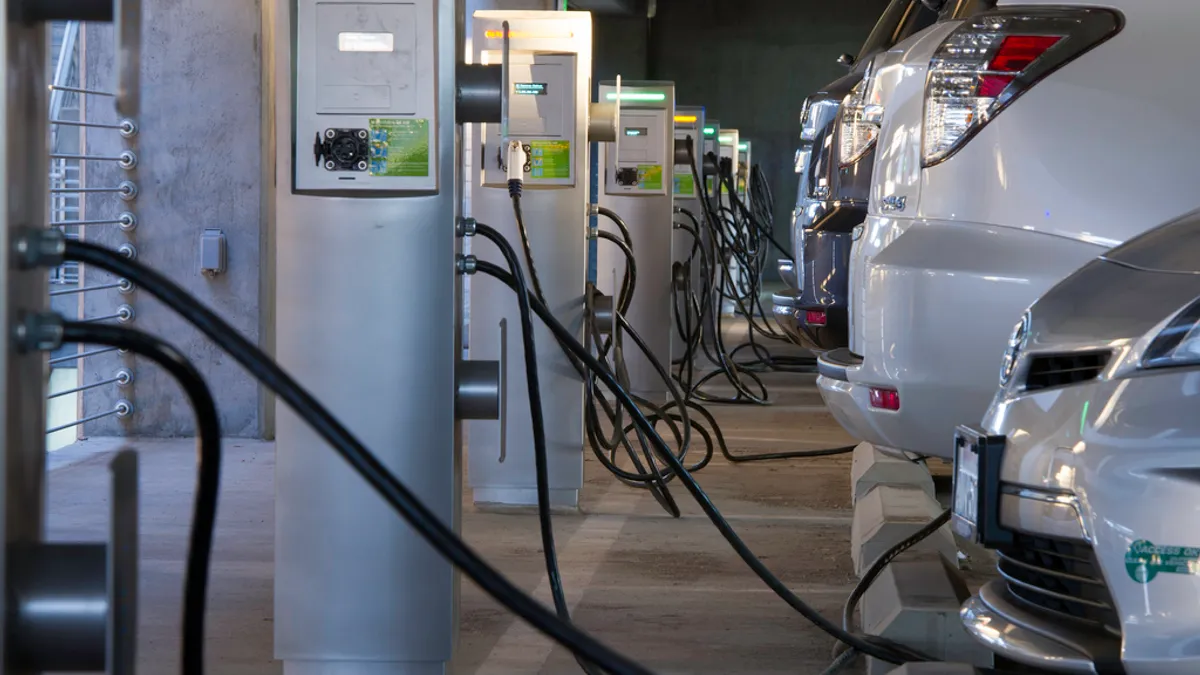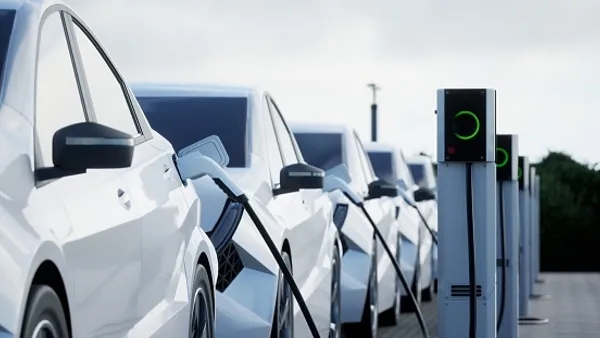Dive Brief:
- Consumer and environmental advocates remain split over a proposed incentive for Washington, D.C., residential customers to install electric vehicle (EV) chargers, leaving the district's Public Service Commission to make a decision that will almost certainly leave some sides unhappy.
- As part of its transportation electrification plan, Pepco proposed a $500 rebate for 500 households to install smart Level 2 chargers. But with some consumer advocates opposed to the incentive, the PSC ordered a work group to consider the issues and seek consensus among various stakeholders.
- Pepco filed the Transportation Electrification Working Group's report on Jan. 29, informing regulators that the group had not reached a consensus on the merits of the charger rebate.
Dive Insight:
District regulators have already approved some portions of Pepco's electrification plan, including new residential EV rates rolling out in March that are designed to encourage off-peak charging. Pepco will also provide make-ready work to install up to 35 public Level 2 chargers and 20 fast chargers, along with a half dozen chargers to support electric buses and a dozen for electric taxis and ride share vehicles.
But its proposed incentive for privately-owned chargers created a split that stakeholders were unable to bridge.
The D.C. Office of People's Counsel supports transportation electrification, but believes the residential rebate "does not provide benefit for those who don’t own EVs and all ratepayers who would have to share in the costs associated with the rebates."
"All utility plans with incentives, large or small, must be cost-effective and provide tangible benefits to all consumers," OPC said in an email.
The proposed rebate is a relatively small portion of Pepco's plan: Incentives for 500 customers would cost about $250,000. Pepco's original proposal had a total price tag of around $15 million, though the utility said that has been cut down to $4.3 million.
"We view [the charger incentive] as small in absolute terms and relative to other programs. We don't see a lot of ratepayer money in jeopardy," Joshua Berman, senior attorney with Sierra Club's environmental law program, told Utility Dive.
Berman said the working group approach — seeking consensus on the specific issue — may have made it harder to find common ground. Within a larger rate case setting, stakeholders can often find more common ground because there are more items they are "trading over."
"It can be a little challenging with standalone EV proposals," said Berman. "The commission wanted this exercise to happen, and people did show up in good faith ... But bottom line, there wasn't consensus around the issues."
The Apartment and Office Building Association of Metropolitan Washington (AOBA) also opposes the incentive because of costs to non-EV owners, but characterized the work group process as a "healthy debate."
"Consensus is sometimes elusive, but the Working Group is raising and clarifying issues that will define transportation electrification for the immediate future," AOBA said in an email.
Pepco believes the residential charger incentives, paired data collection requirements and load management programs will generate value for all customers.
The utility has a similar program in its Maryland service territory, where it offers a lower, $300 incentive for residential charging equipment. That experience should mean a "pretty seamless" rollout in D.C., if regulators approve the incentive, Jennifer Grisham, Pepco's principal business program manager, told Utility Dive.
"Electric vehicles being a newer technology coming into our service territory, we want to use that data to learn about customer charging habits. We can analyze that data and see what trends are coming," Grisham said. "We think it's going to be beneficial for us and customers."
As for the diversity of perspectives in the work group, "we all have the same end goals, just different ideas of how to get there," Grisham said.
A spokesperson for the D.C. PSC said the Commission "is currently reviewing the report and will take further actions as appropriate."















